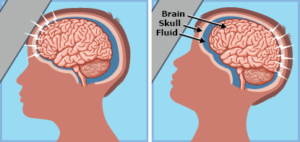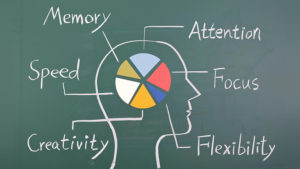
What’s up ? This is THE stephane ANDRE. With my training, I’m interessed in biomechanics to avoid injuries. I read « Sport Medicine Media Guide » and I learned some good stuff.
A concussion is a traumatic brain injury that alters mental state or creates others symptoms. Many people think they have no concussion because they have not lost consciousness. You must know that it’s possible to have a concussion without losing consciousness. Often football or rugby players say : « I just got my bell rung » when they have been hit on the head that makes the ears rings, but these symptoms are often consistent with concussion.
Signs
-
Balance problems
-
Difficulty communicating, concentrating
-
Dizziness
-
Drowsiness
-
Fatigue
-
Feeling emotional
-
Feeling mentally foggy
-
Headache
-
Irritability
-
Memory difficulties
-
Nausea
-
Nervousness
-
Numbness or tingling
-
Sadness
-
Sensitivity to light or noise
-
Sleeping more than usual or difficulty falling asleep
-
Visual problems (blurry or double vision)
-
Vomiting
Diagnostic
As soon as a concussion is suspected, a trained coach, certified athletic trainer or the team physician should immediately perform an initial « sideline » evaluation, including :
-
Symptoms list review
-
Focused neurological exam
-
Focused orientation exam that tests short-term memory recall such as the event, play, opponent, score or last meal.
-
Focused orientation exam that tests long-term recall such as name, birth date, place of birth.
-
Assessment of athlete’s ability to stay attentive to a complex task such as reciting months backwards.
If a person is suspected of having a concussion and there is no diagnosis, a concussion may place an athlete at risk of developing second impact syndrome. It’s a potentially fatal injury that occurs when an athlete suffers a second head injury before the old head injury has completely healed.
Second impact syndrome
Second impact syndrome is a potentially fatal injury that occurs when an athlete suffers a second head injury before the old head injury has been fully healed. Unfortunately, it’s complicated to know if the brain has been healed from the first injury. Even after all symptoms resolved, it’s possible that the healing isn’t complete and that it increases the risk to the brain of having the second impact syndrome. Neurocognitive testing can help doctors or physician decide when the athlete can return to the competition in the best conditions.
Neurocognitive testing
Neurocognitive testing is a questionnaire (usually on the computer) that athletes do that deals with several areas of brain function, including memory, problem solving, reaction times, brain processing speed and post-concussion symptoms. It’s most valid if the athlete has a pre-injury baseline test on file to compare the post concussion test. This information can be really helpful for the doctor or physician to decide when the athlete can return to the competition.
When to return to the competition
All athletes suffer concussion (whatever the gravity) should pass an evaluation by a qualified health care provider before returning to the competition. Athletes should return to competition after they have been completely cleared of all concussion symptoms and have no symptoms during and after physical tests.
Baseline testing is important for assessing concussion symptoms after an incident. The baseline testing often includes neurocognitive tests, symptom checklists, sideline assessment tools such as the Sideline Concussion Assessment Tool and balance testing.
Statistics
-
Athletes who have already had a concussion are more likely to have another concussion.
-
Children and teenagers are more likely to have concussion and take longer to heal than adults.
Subscribe to my newsletter and share this article if you think it can help someone you know. Thank you.
-Steph

